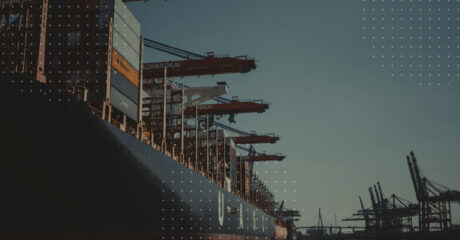The industrials sector faces 297,696 restrictions on their operations from federal regulations. Today, the financial burden from these regulations is compounded by the cost of the highest U.S. import duties since the Great Depression. Federal Reserve researchers estimate the compliance costs to manufacturers associated with tariffs may annually range from $39 billion to $71 billion.
The growing cost of trade compliance within the industrials sector puts increased pressure on manufacturers to implement efficient risk assessments, explore tariff mitigation strategies, and identify supply chain strategies to strengthen resilience.
Core challenges facing manufacturers
Tariff mitigation and strategic sourcing
Manufacturers are looking to identify alternative suppliers that present less risk or burden when compared to those suppliers located in countries with significant tariffs. Geopolitical concerns are causing manufacturers to look at dual sourcing to reduce reliance on a single supplier or country. A recent survey of industrial manufacturers with operations in China found that 57 percent are considering the “supplier + 1” strategy. Manufacturers must be able to proactively identify impacted suppliers and discover potential alternatives to maintain production continuity and protect margins.
>> Learn how to see deeper into supplier networks and map alternative sourcing options <<
Sub-tier supply chain visibility
In a recent McKinsey survey of senior supply executives, only 30 percent reported their organization had a deep understanding of supply chain risks beyond tier 1. This lack of visibility exposes manufacturers to forced labor, geopolitical, and tariff risk. Manufacturers require solutions to map relationships beyond direct suppliers to the true origin of raw materials and components.
>> See why “outside-in” supply chain mapping is the key to visibility beyond tier 1 <<
Export control and diversion risk
The continuous creation of new sanctions and restricted-party lists by global regulators requires manufacturers to remain vigilant to ensure export control compliance and prevent product diversion. As a result, organizations must go beyond simple watchlist screening to map the actual trade relationships and corporate networks of customers and distributors.
>> Get tips to protect against subsidiary risk to ensure export control compliance <<
Forced labor compliance
Global forced labor regulations require organizations to identify and mitigate exposure to forced labor in their supply chain. This process is relatively straightforward when it comes to evaluating relationships with direct tier 1 suppliers, but becomes increasingly difficult as compliance teams move beyond tier 1. Manufacturers need efficient methods to uncover non-obvious risk sources hidden deep in sub-tier supplier networks to prevent costly detentions, operational disruptions, and reputational damage.
>> Learn strategies to identify hidden forced labor risk in your supply chain <<
Product-specific regulations
Material-specific regulations, such as the European Deforestation Regulation (EUDR), global conflict minerals legislation, and restrictions on steel and aluminum imports into the U.S., require enhanced scrutiny of global suppliers to ensure compliance. This scrutiny requires thorough visibility beyond tier 1 into sub-tier suppliers to determine country of origin for components and raw materials.
>> Get tips to prepare your organization for the EUDR’s effective date <<
Sanctions and counterparty screening
Remaining on the right side of regulations and protecting brand reputation require a rigorous entity screening process on all third parties, including customers and distributors. Comprehensive screening must encompass both automatic flagging based on watchlists and contextual analysis that can uncover red flags in historical behavior or linkages. Organizations must also be able to back up their efforts with full documentation and a clear, defensible audit trail.
Sayari: a solution for comprehensive supply chain risk management
Sayari’s risk intelligence solutions empower industrial companies to navigate an increasingly complex landscape of regulatory and supply chain challenges. By illuminating sub-tier supplier networks and trade relationships in high-risk jurisdictions, Sayari helps manufacturers protect their operations from costly disruptions, ensure regulatory compliance, and build more resilient global supply chains. Sayari uniquely delivers:
- Transparency: Sayari provides clear data lineage from official public records to support defensible compliance decisions.
- Holistic Visibility: Sayari illuminates complex corporate networks and sub-tier supplier relationships that traditional tools miss.
- Data Depth: Our solution combines trade data with corporate ownership data at scale to provide a complete picture of risk.
- High-Risk Jurisdiction Coverage: Sayari delivers critical insight into challenging manufacturing hubs where industrial supply chains are concentrated.
Our industrial customers use Sayari to fortify global supply chains from raw materials to finished goods to ensure compliance, resilience, and sustainability in a complex and evolving regulatory environment. To learn more about achieving these benefits for your organization, request a personalized demo.



